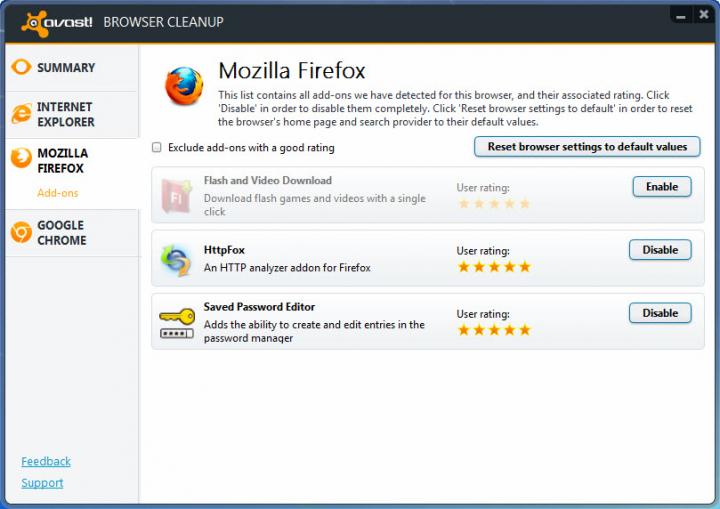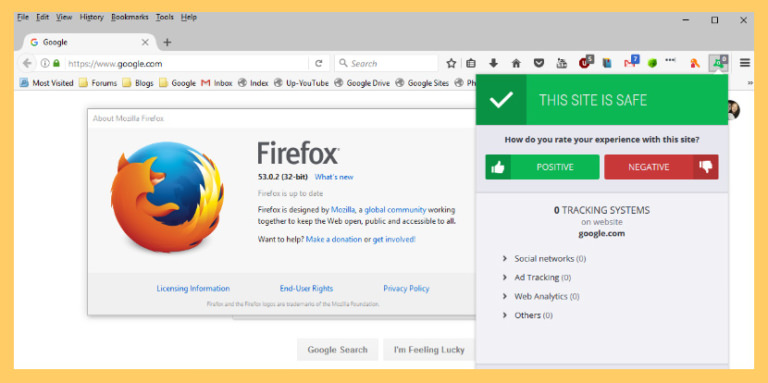

- Disable avast browser protection in firefox how to#
- Disable avast browser protection in firefox install#
- Disable avast browser protection in firefox free#

Do this by clicking on the icon located on the Desktop, or seek it out via the Start Menu. OK, so the first thing to do here is to fire up Avast Secure Browser if you haven’t already. The first thing we want to do here, is to block the browser from starting up automatically. Block Avast Secure Browser from auto startup
Disable avast browser protection in firefox how to#
If you want to learn how to get Avast Secure Browser under control, then keep reading because the information below is very helpful. How to turn off or disable Avast Secure Browser This can be a problem for those who just have no use for the browser since it’s not that different from Chrome, Microsoft Edge, Brave, and other Chromium-based web browsers. However, we understand it can take a heavy toll on your system resources when starting up automatically. Additionally, the browser, in many instances, will remain on your computer after uninstalling the Avast antivirus. Now, many users like the security and privacy feature Avast Secure Browser brings to the table.

The company has decided to add the browser as part of a package alongside the antivirus.
Disable avast browser protection in firefox free#
The four extensions are still available on the Google Chrome Web Store.Avast Secure Browser is a free web browser from the company behind the Avast antivirus software, and it is based on Chromium. Meantime, the extensions would remain active for users that have already installed them and will continue to collect the above information. Palant shared his findings to browser makers, Mozilla, and Google, and the former decided to temporarily remove the extensions from the Firefox Add-on store.Īvast and AVG can resubmit the extensions to the addon store when they will have addressed the privacy issues. “All that is connected to a number of attributes allowing Avast to recognize you reliably, even a unique user identifier,”

“Tracking tab and window identifiers as well as your actions allows Avast to create a nearly precise reconstruction of your browsing behavior: how many tabs do you have open, what websites do you visit and when, how much time do you spend reading/watching the contents, what do you click there and when do you switch to another tab.”continues Palant. The above data could be used to spy on users online and discover their habits and preferences. Your operating system and exact version number (the latter only known to the extension if Avast Antivirus is installed). Chrome or Firefox) and version number of your browser. Also not set for me when Avast Antivirus was installed. Seems to be another unique user identifier, the one starting with “ceda” in the screenshot above. For some reason this one wasn’t set for me when Avast Antivirus was installed. This will be “US” for US English.Ī unique user identifier generated by the extension (the one visible twice in the screenshot above, starting with “d916”). Your country code, which seems to be guessed from the browser locale. by entering the address directly, using a bookmark or clicking a link. Identifier of the window and tab that the page loaded into. It is hidden from the extension listing and cannot be uninstalled by regular means, its functionality apparently considered an integral part of the browser.”īelow the list of data sent by the browser extensions to the above URL: FieldĪddress of the page that you got here from, if any. This isn’t obvious but Avast Secure Browser has Avast Online Security installed by default.
Disable avast browser protection in firefox install#
“But even if you didn’t install Avast Online Security yourself, it doesn’t mean that you aren’t affected. The culprit is the Avast Online Security extension that these products urge you to install in your browser for maximum protection.” reads the report published by Palant. “Are you one of the allegedly 400 million users of Avast antivirus products? Then I have bad news for you: you are likely being spied upon. The suspicious behavior was first detailed by the security researcher Wladimir Palant reported who noted that these extensions were sending a large amount of tracking data about a user’s online activity to the URL. These browser extensions are installed when users install Avast or AVG antivirus solutions on their computers on their PCs. The popular extensions were found collecting a lot more data on millions of users, including their browsing history. SafePrice extensions display a small bar on e-commerce sites that alert users to better prices at other sites when shopping for certain products. The four extensions developed by Avast and its subsidiary AVG are:īoth Avast and AVG Online Security extension alert users to phishing, scam, and malicious sites when a user visits malicious sites. “This add-on violates Mozilla’s add-on policy by collecting data without user disclosure or consent,” explained Mozilla.


 0 kommentar(er)
0 kommentar(er)
